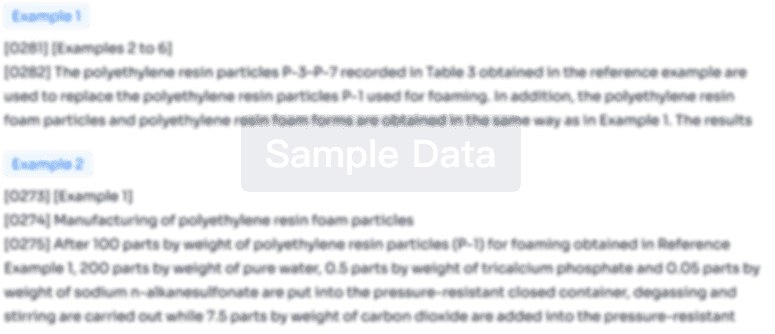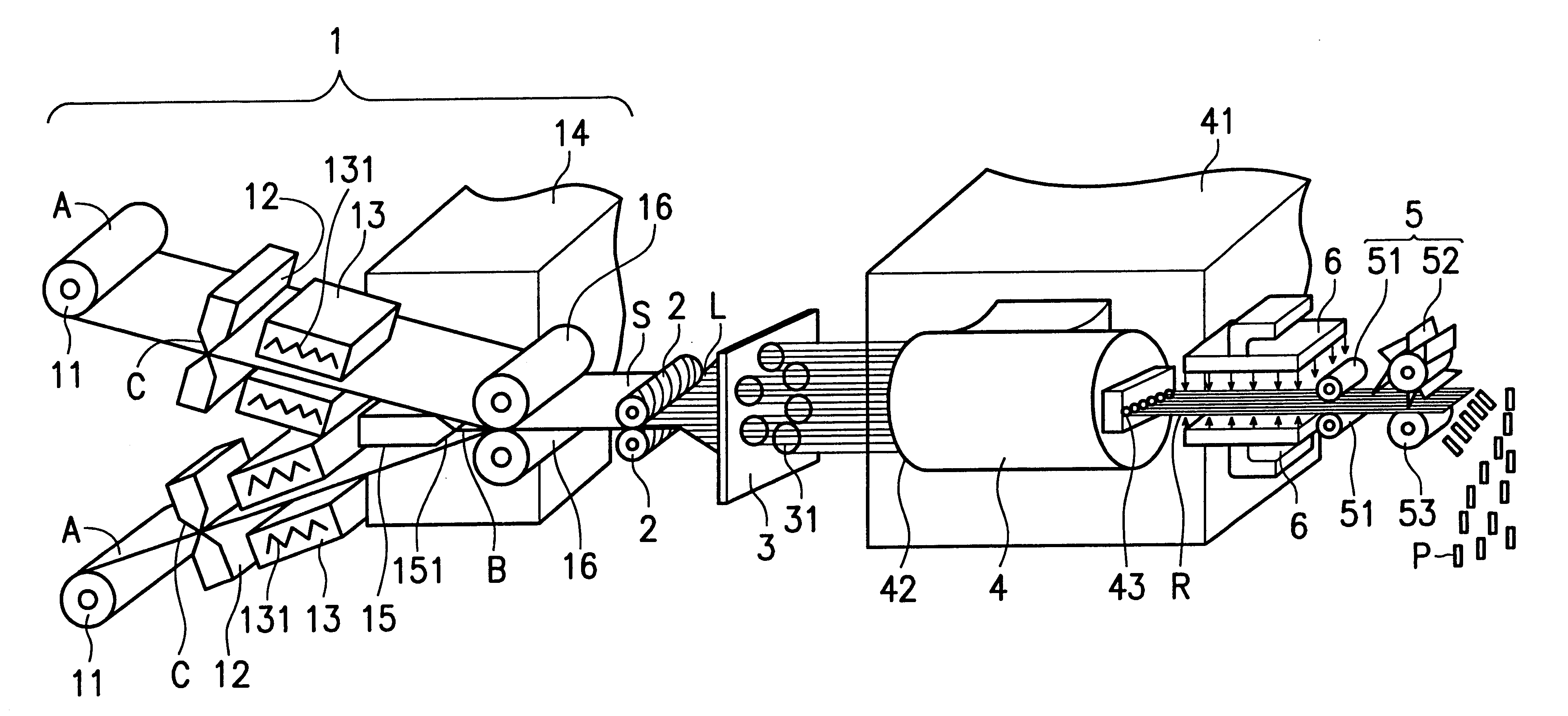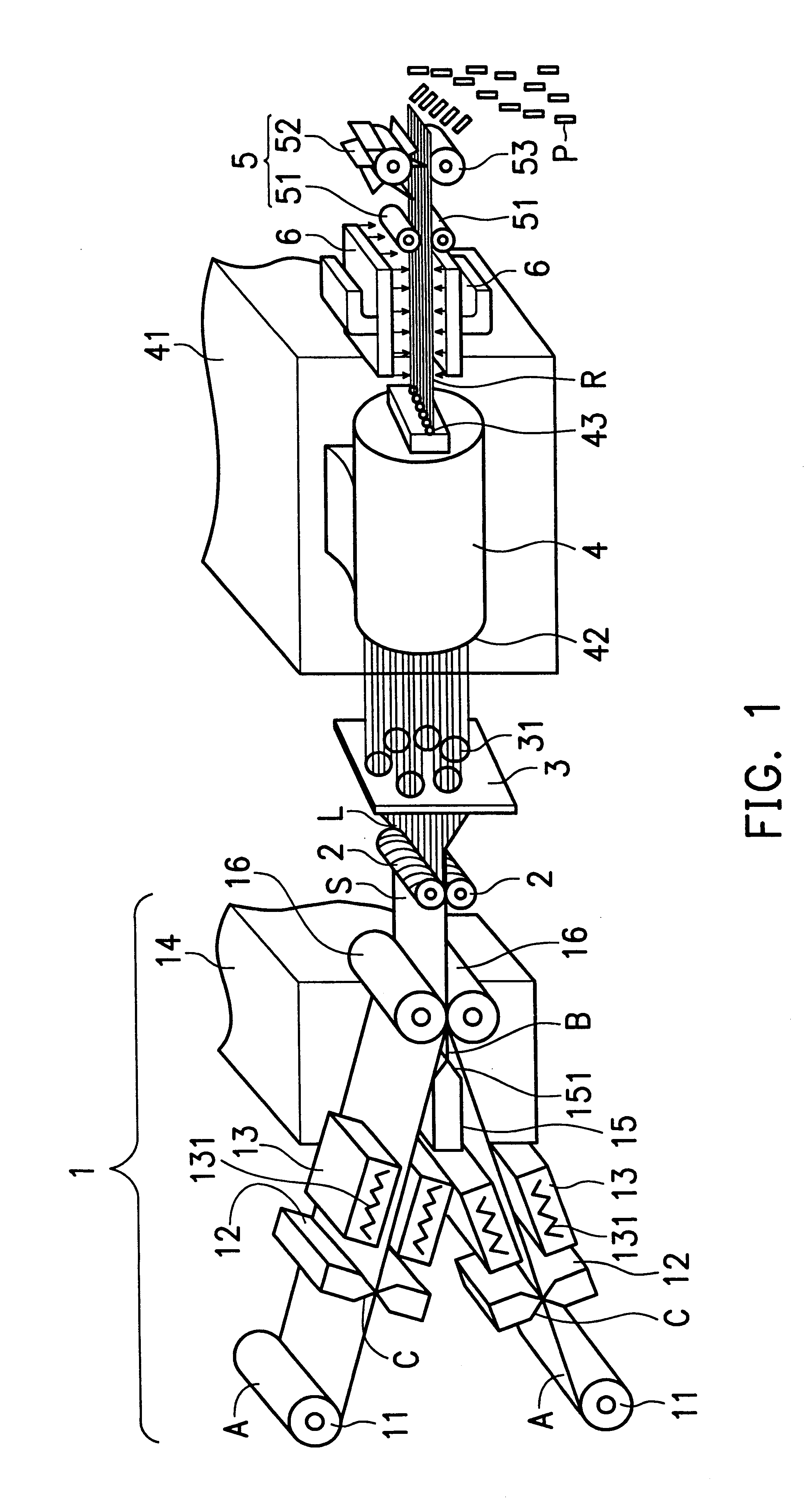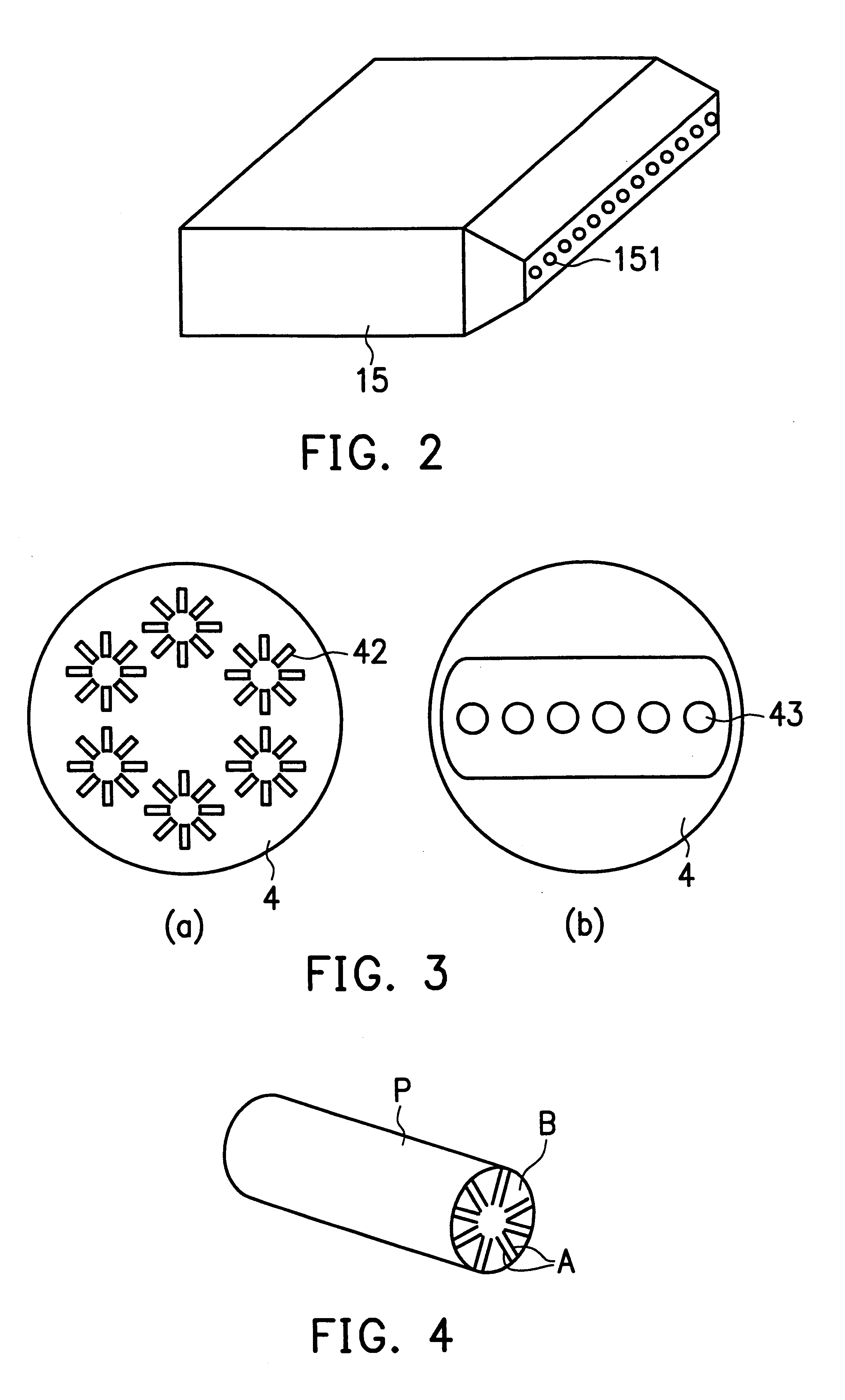Process and apparatus for making radially arranged aluminum foil-filled plastic pellets to shield against electromagnetic interference
a technology of aluminum foil and plastic pellets, which is applied in the field of making aluminum foil filled plastic pellets to shield against electromagnetic interference, can solve the problems of cumbersome metal shielding, heavy and costly, and harmful to the human body, and achieves the effects of reducing the number of metal shields, and reducing the number of aluminum foil-filled plastic pellets
Inactive Publication Date: 2001-04-03
NAT SCI COUNCIL
View PDF3 Cites 4 Cited by
- Summary
- Abstract
- Description
- Claims
- Application Information
AI Technical Summary
Problems solved by technology
However, the high-density electromagnetic waves produced from electronic equipment have the potential to damage or adversely affect the performance of other equipment or components.
Also, exposure to electromagnetic waves may be harmful to the human body.
However, because shields fabricated from metal are cumbersome, heavy and costly, the electronics industry has resorted to metallized plating on plastics.
However, the results obtained with metallic coatings have not always been satisfactory.
In addition to being relatively uneconomical, once such metallic coatings are scratched through, they lose part of their shielding effectiveness.
Frequently, it is difficult to obtain a dependable, 100% effective coating that is also resistant to peeling.
However, during the compounding with the resin matrix, the conductive powders may easily cluster, and thus are not capable of dispersing in the resin matrix.
Consequently, the electromagnetic shielding effectiveness of the molded products can not be effectively improved.
Consequently, the mechanical properties, color and other physical and chemical properties of the molded products are adversely affected.
Alternatively, if the conductive filler is in a higher aspect ratio form such as fibers or flakes, although the filler can be loaded to a lower level, clustering is still difficult to prevent.
However, such a strong conductive filler is very expensive, and is thus not suitable for ordinary low-cost electronic equipment.
However, such strong fibrous filler, such as stainless steel fiber, copper fiber or metal-coated carbon fiber, is very expensive.
However, since aluminum has low strength, many aluminum flakes break during the compounding process, resulting in a rapid decrease of the aspect ratio.
The result is that total costs are increased, and more seriously, the electromagnetic shielding plastic products thus obtained have poor mechanical properties.
For example, elongation, tensile strength, bending strength and impact strength are all adversely affected.
Again, since the diameter of the aluminum fiber is very small and the alumin
Method used
the structure of the environmentally friendly knitted fabric provided by the present invention; figure 2 Flow chart of the yarn wrapping machine for environmentally friendly knitted fabrics and storage devices; image 3 Is the parameter map of the yarn covering machine
View moreImage
Smart Image Click on the blue labels to locate them in the text.
Smart ImageViewing Examples
Examples
Experimental program
Comparison scheme
Effect test
 Login to View More
Login to View More PUM
| Property | Measurement | Unit |
|---|---|---|
| Thickness | aaaaa | aaaaa |
| Diameter | aaaaa | aaaaa |
| Width | aaaaa | aaaaa |
Login to View More
Abstract
The present invention provides a novel process for making a radially arranged aluminum foil-filled plastic pellet for shielding against electromagnetic interference, comprising sandwiching a plastic matrix in between two layers of aluminum foil to form an aluminum/plastic/aluminum laminated sheet; slicing the laminated sheet into a plurality of aluminum/plastic/aluminum laminated strips; dividing the plurality of laminated strips into at least one group, each group containing 3 to 20 radially arranged strips; moisturizing and binding at least one group of laminated strips with a molten plastic matrix to form at least one radially arranged aluminum foil-filled plastic bar; and cutting at least one plastic bar into radially arranged aluminum foil-filled plastic pellets. By the present invention, the cost of making the conductive plastic pellets can be decreased, the amount of aluminum foil in the pellet can be greatly increased, and the breakage of the aluminum foil in the die can be prevented.
Description
BACKGROUND TO THE INVENTION1. Field of the InventionThe present invention relates to a novel process for making aluminum foil-filled plastic pellets for shielding against electromagnetic interference (EMI), and more particularly relates to a process for making such pellets which are filled with radially arranged aluminum foil by using two aluminum foil layers and a molten plastic matrix as raw materials.2. Description of the Prior ArtIn recent years, the progress of technology has led to a marked increase in the amount of sophisticated electronic equipment. However, the high-density electromagnetic waves produced from electronic equipment have the potential to damage or adversely affect the performance of other equipment or components. Also, exposure to electromagnetic waves may be harmful to the human body. Therefore, an electrically conductive outer shell is needed to shield against electromagnetic interference (EMI) produced by electronic equipment.Heretofore, various methods hav...
Claims
the structure of the environmentally friendly knitted fabric provided by the present invention; figure 2 Flow chart of the yarn wrapping machine for environmentally friendly knitted fabrics and storage devices; image 3 Is the parameter map of the yarn covering machine
Login to View More Application Information
Patent Timeline
 Login to View More
Login to View More IPC IPC(8): B29B9/12H05K9/00
CPCB29B9/12H05K9/0083Y10T156/1084
Inventor CHUANG, TUNG-HANCHIANG, CHIN-MING
Owner NAT SCI COUNCIL
Features
- R&D
- Intellectual Property
- Life Sciences
- Materials
- Tech Scout
Why Patsnap Eureka
- Unparalleled Data Quality
- Higher Quality Content
- 60% Fewer Hallucinations
Social media
Patsnap Eureka Blog
Learn More Browse by: Latest US Patents, China's latest patents, Technical Efficacy Thesaurus, Application Domain, Technology Topic, Popular Technical Reports.
© 2025 PatSnap. All rights reserved.Legal|Privacy policy|Modern Slavery Act Transparency Statement|Sitemap|About US| Contact US: help@patsnap.com



